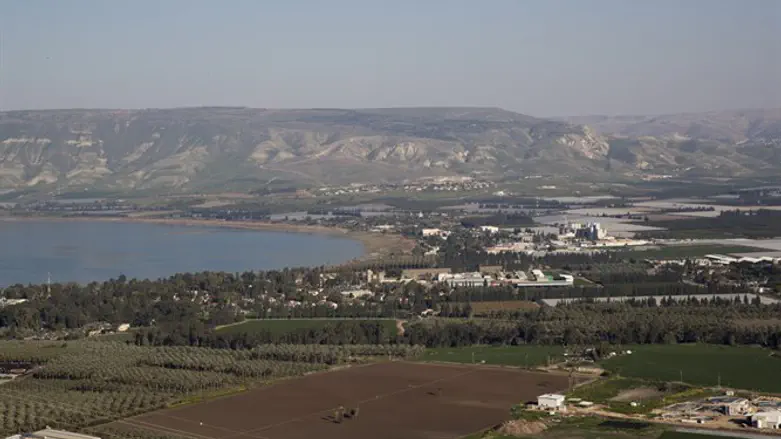
After public consultation, the Water Authority Council approved a schedule for determining the allocation of water to agriculture and nature reserves, such that if current drought forecasts materialize, water allocation will be reduced even further to 210 million cubic meters of fresh water.
The rain that has fallen by the end of December amounted to only about 40% of the annual average for the season - worse than forecasts three months ago predicted. Officials say current forecasts remain troubling, despite the recent rain.
In light of this, the Water Authority this week announced the need to increase efficiency and drastically reduce domestic and municipal consumption.
The Center for Local Government has endeavored to cope with the shortage, with the aim of still preserving public gardening in the local authorities' areas for the benefit of the public as much as possible given the existing situation.
The amount of water allocated to public gardening has been reduced by 13%, regulations will be adhered to for permitted irrigation hours, and green gardens and open green public spaces will be turned down as much as possible.
The Water Authority welcomes the recent rains, but warns against misplaced optimism. "We are in the midst of a year that until now has been extremely drastic, following four years of drought. This is a rare and exceptional sequence of five drought years, the probability of which is only 2%. We must all prepare for the severe water shortage expected in 2018."
Because of the ongoing drought, underground aquifers are increasingly depleted, and the water level in the Sea of Galilee (Kinneret), Israel's largest reservoir, has declined significantly.
While in most years, the rainy season sees a net gain in the amount of water in the Kinneret, with rainfall and water from rivers running into the freshwater lake more than replacing the water which evaporates from the Kinneret, this winter has actually seen a net decrease in the quantity of water in the Kinneret. This decrease comes despite the fact that Israel's Water Authority has drawn almost no water from the reservoir over the past two-and-a-half years.
Streams and other water sources are also at an unprecedented low. The main springs feeding the Jordan - the Dan and the Banias - fell to extremely low levels, and the water level in the Galilee groundwater basins fell to the lowest measured in history. The shortage of water resources already exceeds 2.5 billion cubic meters of water.
The Director of the Water Authority, Giora Shaham, delivered farmers a clear and concise message about the expected shortage in order that they may prepare for the crisis situation. "We must all prepare for a difficult year. We have no water, and you must prepare for it. If you planned to order seedlings and plant a new field, don't do it. If you planned this year to change your variety of crops, this is the opportunity. If you plan to open a furrow and plant another 100 dunams of tomatoes or onions, reconsider. The water will be very scarce this year. And to the public it is important to say that this very unusual situation obligates us all to take action that starts with personal conservation, continuing with responsible management in public gardening, in the neighborhood, and in the city, and extending to every commercial and industrial consumer."